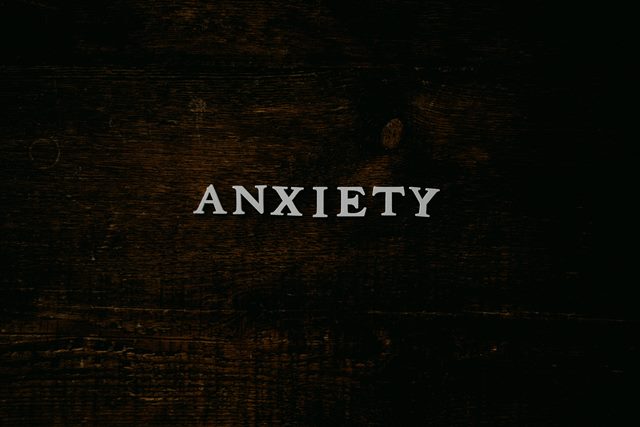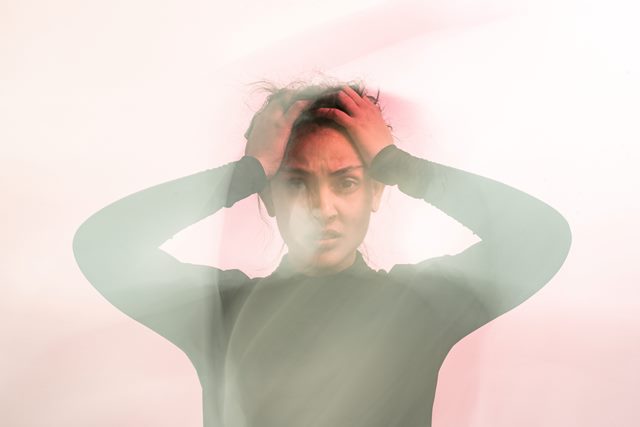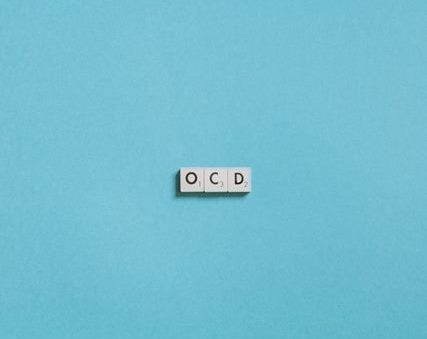Last Updated on February 10, 2023
Anxiety is a normal feeling that we all experience in different situations. But when it becomes excessive, persistent, and interferes with daily activities, it may be a symptom of an anxiety disorder. Anxiety disorders are the most common mental health condition, affecting several people globally. They affect almost 30% of adults at least once in their lives.
It can manifest in various ways, including generalized anxiety disorder, panic disorder, and social anxiety disorder. This is why if you have persistent feelings of worry, fear, nervousness, or panic, you should find out if you have an anxiety disorder.
In this article, we will look at the most common symptoms, causes, and treatment options for anxiety disorders.
So, if you’re feeling overwhelmed and wondering if you have an anxiety disorder, stick around as we explore how to understand and manage this condition.

Anxiety as a Normal Emotion
Anxiety is a feeling of fear, worry, or unease about something with an uncertain outcome. It is a normal emotion that almost everyone experiences at some point in their lives. Anxiety can be triggered by various life events such as starting a new job, moving to a new city, public speaking, or taking exams.
However, anxiety isn’t always a bad thing. It can be helpful in some situations by assisting individuals in preparing for potential challenges and making informed decisions. For example, feeling anxious before a big exam can motivate people to study harder and perform better.
When anxiety becomes intense, persistent, or interferes with daily activities, it may be a sign of an anxiety disorder. Anxiety disorders can cause excessive worry, avoidance of social situations, and physical symptoms such as headaches, muscle tension, and digestive problems.
Many people don’t know they have an anxiety disorder because they are either unaware of the symptoms or dismiss them.
Meanwhile, anxiety disorders are characterized by persistent worry and fear, nervousness, or panic. Physical symptoms such as sweating, shaking, a rapid heart rate, and aversion to social situations may also indicate an anxiety disorder.

Yes, these symptoms can range from mild to severe. We will discuss them in-depth in the following paragraphs.
However, seeking a professional would help you determine if they are symptoms of an anxiety disorder or another health condition.
Read: What is Post-Traumatic Stress Disorder (PTSD)?
Common Symptoms of Anxiety Disorder
Understanding the common symptoms of anxiety disorders would help you with early recognition and effective management of the condition.
Here are some of the common symptoms of anxiety disorders:
Persistent Feelings of Worry and Fear
Individuals suffering from anxiety disorders may experience extraordinary fear or worry. Although everyone can be afraid, it might be a sign of anxiety disorder if trepidation sets in. Individuals may be concerned about their health, finances, or relationships, which may interfere with their daily activities.
Nervousness or Panic
Some people may experience intense nervousness or panic, accompanied by physical symptoms such as sweating, shaking, and a rapid heart rate. These panic attacks are unpredictable and can last from a few minutes to an hour.

Physical Symptoms
Physical symptoms are common in anxiety disorders, including sweating, shaking, rapid heart rate, shortness of breath, and headaches. People experiencing such symptoms cannot function effectively, whether in school or at work.
Avoiding Social Interaction
Individuals with a social anxiety disorder may experience intense fear and self-consciousness in social situations. This includes public speaking, job interviews, or even meeting new people. They may avoid these situations, leading to isolation and reduced quality of life.
Read: Attention-Deficit/Hyperactivity Disorder (ADHD): Symptoms, Causes, Treatment, Diagnosis
Types of Anxiety Disorders
There are different ways in which people experience an anxiety disorder. Here are some of the common types of anxiety disorders:

Generalized Anxiety Disorder (GAD)
GAD is characterized by persistent and excessive worry about various issues, such as health, finances, and relationships. These worries can be distressing and can interfere with daily activities.
Panic Disorder
Panic disorder is characterized by sudden and intense nervousness or panic. In most cases, panic disorders are accompanied by physical symptoms such as sweating, shaking, and rapid heart rate. These panic attacks can be unpredictable and can last several minutes to an hour.

Social Anxiety Disorder
Social anxiety disorder involves intense fear and self-consciousness in social situations, such as public speaking, job interviews, or even meeting new people. You’ll notice some people avoid these situations, and when forcefully put into them, they may break down.
Specific Phobias
Specific phobias are intense and irrational fears of specific objects or situations, such as heights, flying, or spiders. These phobias can interfere with daily activities and quality of life.
Obsessive-Compulsive Disorder (OCD)
Obsessive-Compulsive Disorder is characterized by intrusive and repetitive thoughts, known as obsessions, and repetitive behaviors, known as compulsions. These thoughts and behaviors can be distressing and can interfere with daily activities.

These are just a few of the most common types of anxiety disorders, and people can have more than one type of anxiety disorder.
However, seek professional help if you are experiencing persistent fear, worry, nervousness, or panic for an accurate diagnosis and effective treatment of the condition.
If you’ve noticed that you sometimes feel some of these symptoms, it’s only natural to want to know why it happens. Below, we’ll discuss the causes of anxiety disorders.
Causes of Anxiety Disorders
While the exact cause of anxiety disorders is not fully understood, a combination of genetic, environmental, and psychological factors is thought to play a role.
Genetics
Anxiety disorders can run in families, and a family history of anxiety or other mental health conditions may increase the risk of developing an anxiety disorder.
Brain Chemistry
Imbalances in brain chemicals, such as neurotransmitters, can play a role in the development of anxiety disorders.
Life Events
Traumatic or stressful life events, such as the death of a loved one, abuse, or a natural disaster, can increase the risk of developing an anxiety disorder.
Chronic Medical Conditions
Chronic medical conditions, such as heart disease, diabetes, and others, can increase the risk of developing an anxiety disorder. This is because the stress of managing a chronic condition can be overwhelming.
Substance Abuse
Substance abuse, particularly alcohol and drug use, can increase the risk of developing an anxiety disorder.

However, these causes can interact and influence each other in complex ways, and the cause of an anxiety disorder can vary from person to person.
Read: What Does Bipolar Disorder Mean?
Diagnosing an Anxiety Disorder
Early detection and treatment of anxiety disorders are critical for effective management and improved quality of life.
The following steps are usually taken when diagnosing an anxiety disorder:
Clinical Evaluation
The first step in diagnosing an anxiety disorder is a clinical evaluation. This is when a healthcare provider or mental health professional takes a detailed history of your symptoms and medical history.
Psychological Assessment
A psychological assessment may be conducted to assess your emotional and mental state. This could include checking for any feelings of worry, fear, nervousness, or panic. Remember that this process may involve answering questions, participating in behavioral observations, or filling out questionnaires.
Physical Examination
A physical examination may be conducted to rule out any underlying medical conditions contributing to your symptoms.
Diagnostic Criteria
The healthcare provider or mental health professional will use diagnostic criteria, such as the Diagnostic and Statistical Manual of Mental Disorders (DSM-5), to diagnose an anxiety disorder. The DSM-5 provides specific criteria for each type of anxiety disorder.
Differential Diagnosis
The healthcare provider or mental health professional may consider other mental health conditions causing similar symptoms, such as depression. He might then rule them out before making a final diagnosis of an anxiety disorder.
Treatment Options for Anxiety Disorder
Fortunately, many effective treatment options are available for individuals suffering from anxiety disorders. The most effective treatment plan for anxiety disorders is typically a combination of therapy and medication. Here are some of the most common treatment options for anxiety disorders:
Therapy
Cognitive-behavioral therapy (CBT) is a type of therapy that is effective in treating anxiety disorders. CBT focuses on changing negative thought patterns and behaviors that contribute to anxiety.

Other types of therapy, such as exposure therapy, can also be effective in treating anxiety disorders.
Medication
Antidepressants and anti-anxiety medications, such as selective serotonin reuptake inhibitors (SSRIs), can effectively reduce anxiety disorders’ symptoms. Medication can be used with therapy or on its own, depending on the individual’s needs and preferences.
Lifestyle Changes
Making healthy lifestyle changes, such as regular exercise, getting enough sleep, and eating a balanced diet, can also help reduce symptoms of anxiety disorders.
Complementary therapies, such as mindfulness, deep breathing exercises, and meditation, can also effectively reduce symptoms of anxiety disorder in a person.
Overall, everyone’s experience with anxiety disorders is different. As a result, the most effective treatment plan will also vary from person to person.
However, the healthcare provider or mental health professional will work with the individual to develop a treatment plan tailored to their specific needs and preferences.
Before you go…
Hey, thank you for reading this blog to the end. I hope it was helpful. Let me tell you a little bit about Nicholas Idoko Technologies. We help businesses and companies build an online presence by developing web, mobile, desktop, and blockchain applications.
We also help aspiring software developers and programmers learn the skills they need to have a successful career. Take your first step to becoming a programming boss by joining our Learn To Code academy today!
Be sure to contact us if you need more information or have any questions! We are readily available.











